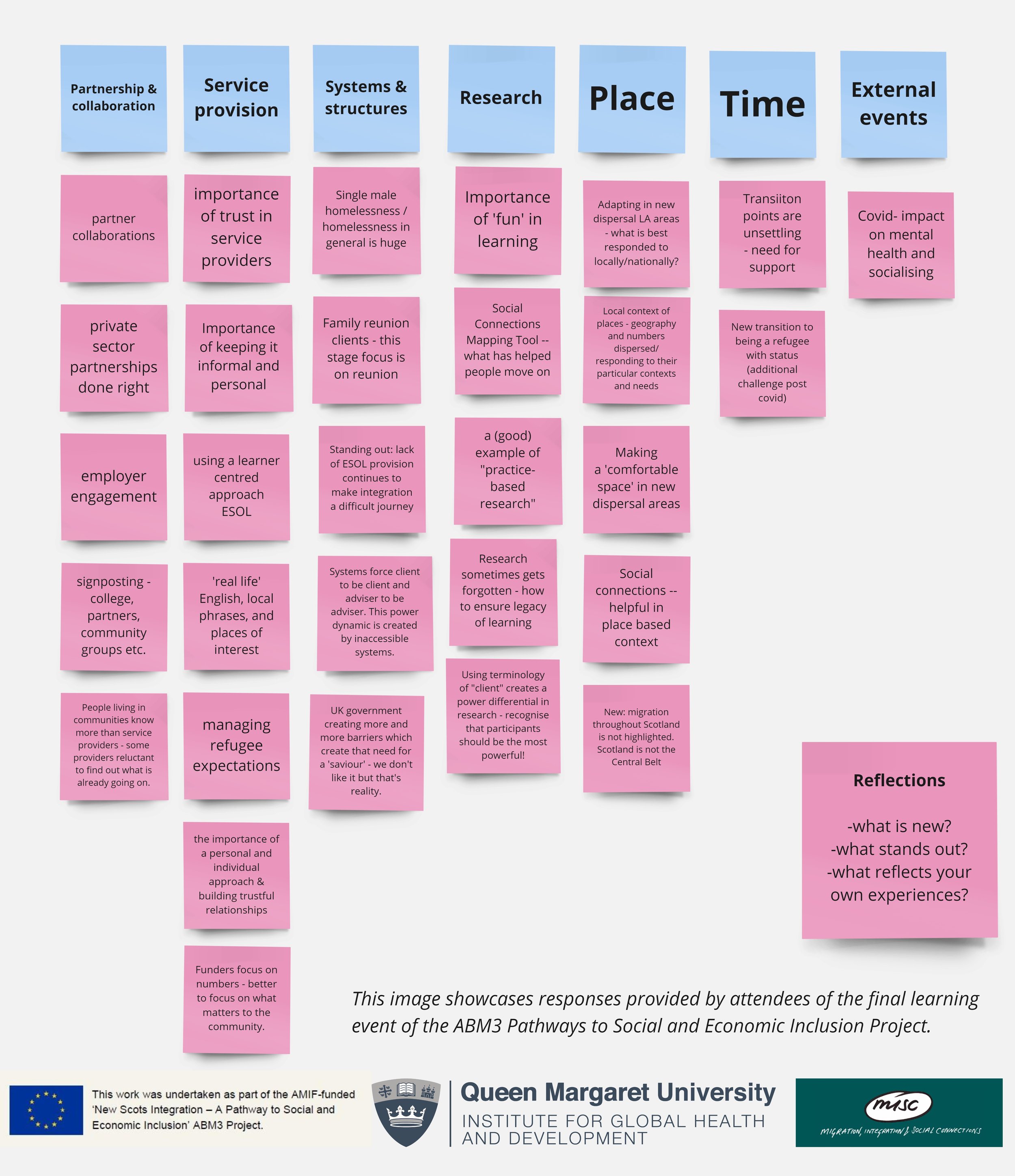New Scots: A Pathway to Social and Economic Inclusion
Team: Marcia Vera-Espinoza (Principal Investigator), Arek Dakessian, Helen Baillot, Emmaleena Käkelä, Leyla Kerlaff,
Marcus Fernandes and Gianluca Palombo
ABM3 New Scots: Pathways to Social and Economic Inclusion project is a two-year research project which has been running since October 2020.
The MISC team is working with our service delivery partners: Scottish Refugee Council, Bridges Programmes and Workers’ Educational Association to explore the role of social connections in the integration of recently recognised refugees living in Scotland. The project is funded by the EU’s Asylum, Migration and Integration Fund (AMIF).
The research aims to better understand the role of social networks in integration and explore the role played by third sector refugee assisting agencies in fostering these. In collaboration with recently settled refugees and service providers, this research provides insight into the role social connections play in people’s pathways to social and economic inclusion, and the meanings they ascribe to these social connections at different points in their integration pathways.
Specific objectives include:
To enrich caseworker-refugee service user interactions by testing the use of the QMU Social Connections
Mapping Tool in a practice context, to enhance personal integration planning.To gather robust quantitative data on the extent and quality of social connections made by refugees
at different stages of their integration journeys in order to inform the delivery of integration services that mobilise existing community assets and harness refugees’ own agency and aspirations.To undertake qualitative research to gain insights into how social connections develop, their role, and their meaning in people’s pathways to social and economic inclusion.
To support practice development by feeding back and collaboratively reflecting on emergent learning with frontline practitioners at timely intervals. Further workshops will be held at the end of the research project, around the incorporation of emergent evidence into the evaluation of existing services and the design and delivery of future services.
Reports
Click the reports to read
Click here or on the Research Report 2020-2022 to read
Click here or on the
Executive Summary 2020-2023 to read
Click here or on the Final Report 2020-2023
to read
Click here or on Interim Report 8 to read
















